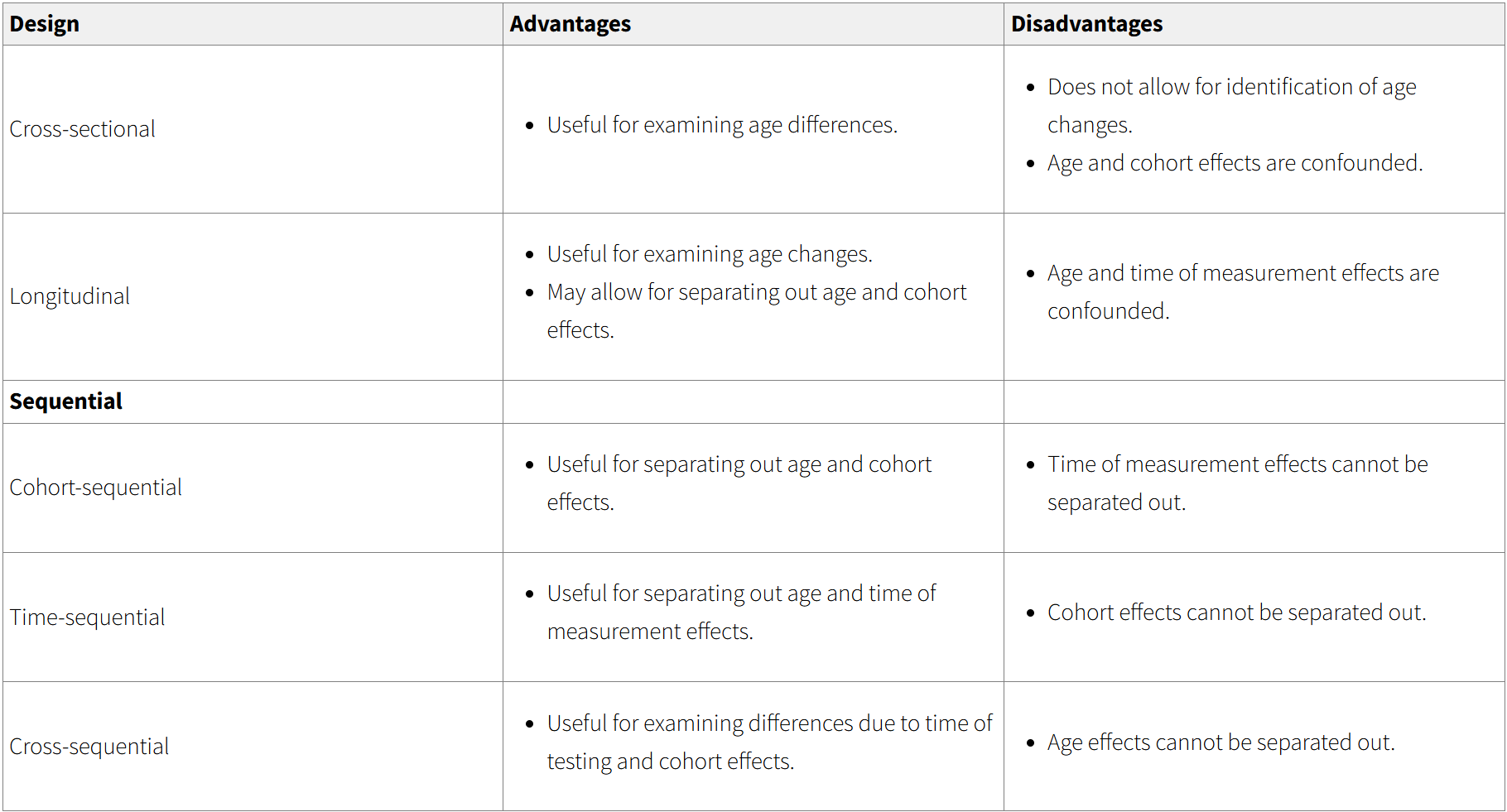Chapter 2: Research Designs and Ethical Issues
1/5
There's no tags or description
Looks like no tags are added yet.
Name | Mastery | Learn | Test | Matching | Spaced |
|---|
No study sessions yet.
6 Terms
Discuss the importance of aging research in dispelling the myths and stereotypes of aging.
Aging research is important because it challenges long-held stereotypes that later life is a time of loneliness, depression, and decline. Studies have shown that life actually gets better in many ways as we get older. For example, both our moods and overall sense of well-being improve with age. Friendships also tend to grow more intimate. Knowledge and certain types of intelligence continue to develop. Productivity and creativity are enhanced and expertise deepens. Research also demonstrates that wisdom flourishes with age.
Describe the main research designs to study the process of aging.
There are three basic research designs used when conducting research on older adults:
Cross-Sectional: Individuals of different ages are compared at a single point in time.
Longitudinal: Data are collected from the same participants over time (often several years).
Sequential: Follows several cohorts of different ages over time.
Cohort-Sequential Design: Two birth cohorts are compared at two different ages.
Time-Sequential Design: Two or more age groups are compared at two or more times of measurement.
Cross-Sequential Design: Two or more birth cohorts are compared at two or more times of measurement.
Compare and evaluate the advantages and disadvantages of each of the research designs in the context of aging research.

Explain the concepts of informed consent, the right to withdraw, and confidentiality of data.
Informed consent means that participants must fully understand the purpose, procedures, potential risks, and benefits of the study before agreeing to participate. They must voluntarily consent without any coercion. The right to withdraw ensures that participants can leave at any time and for any reason without penalty. Confidentiality of data means that all personal information and responses are kept private and secure, with this information available only to the investigator(s) or members of the research team.
Describe the main issues that ethics review boards have with research applications using older adults.
In 2015, Pachana and colleagues reviewed the experiences of 157 researchers in Australia and the United States who had submitted ethical proposals using older adults, both with and without dementia. The study found that six main issues were raised by the Ethical Review Boards:
Consent and Information Requirements
Participant Vulnerability
Participant Burden
Data Access
Study Methodology
Discuss some of the challenges raised by researchers when trying to get ethics approval for research with older adults.
Pachana and colleagues (2015) also reported that many researchers were frustrated by the restrictions and delays caused by the ethics process, which often led to a loss of older adult participants. Researchers felt that ethics board were “not hearing older adults’ voices.” These overly restrictive practices limited participation and prevented progress in developing clinical interventions for aging populations. There was also concern that ethics boards were influenced by ageist assumptions. Pachana and colleagues suggested that ethics committees should practice self-reflection to recognize their own biases and stereotypes, and remember that not all older adults are in poor health or cognitively impaired.